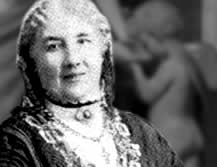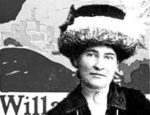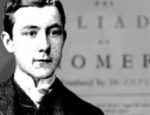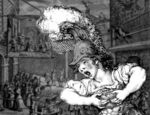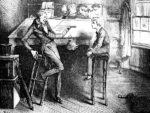Description
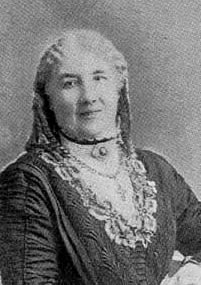 Meet Elizabeth Ann Lewis, the Blackburn Temperance Campaigner, who owned and probably commissioned this picture inspired by Pindar’s famous line ariston men hudor, ‘water is best’ Painted in about 1915 by a then-famous British artist, Horace van Ruith, the picture shows an ancient mother, perhaps Aphrodite, offering her winged Eros-child water from a public fountain, on which the motto is inscribed in the Greek alphabet.
Meet Elizabeth Ann Lewis, the Blackburn Temperance Campaigner, who owned and probably commissioned this picture inspired by Pindar’s famous line ariston men hudor, ‘water is best’ Painted in about 1915 by a then-famous British artist, Horace van Ruith, the picture shows an ancient mother, perhaps Aphrodite, offering her winged Eros-child water from a public fountain, on which the motto is inscribed in the Greek alphabet.
Mrs Lewis was the daughter of a poor farm labourer, George Lewis and his wife, who worked tirelessly for the poor. George had signed the Temperance Pledge in 1836. Their daughter Elizabeth (1849-1924) grew up to be known as ‘The Temperance Queen’ and (in praise) ‘The Drunkard’s Friend.’
Something had to be done about the problem of the alcohol addiction of the lower classes in the Lancashire mill towns. In 1830 an observer recorded, ‘Drunkenness and profligacy exceeds belief… men, women and children in the streets of Salford and Northgate form one mass of riot and dissipation … men stripped to all but their trousers fight with blood streaming down their faces …the cinder ovens of Eanam are the resort of thieves and vagabonds of every description … at a funeral almost every man is intoxicated, reeling after the coffin and making a mockery of the most sacred hymns … nests of harlots are kept at every public house … on Sundays men run naked in foot races … at election times the town is awash with beer, public houses are open day and night.’
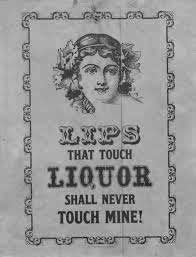 But Blackburn was recognized as the most drink-afflicted town in the world. Ann Lewis devoted her life to improving the condition of its working class. She provided all kinds of support and recreational activity as alternatives to the town’s staggering six hundred licensed premises. Her entertainments in the Spinners’ Institute were famous—she was herself a good pianist. The struggle was an uphill one, but her commitment to the town and its people was recognized. She was a popular and influential public figure. Her painting can still be seen in the Blackburn Museum and Art Gallery.
But Blackburn was recognized as the most drink-afflicted town in the world. Ann Lewis devoted her life to improving the condition of its working class. She provided all kinds of support and recreational activity as alternatives to the town’s staggering six hundred licensed premises. Her entertainments in the Spinners’ Institute were famous—she was herself a good pianist. The struggle was an uphill one, but her commitment to the town and its people was recognized. She was a popular and influential public figure. Her painting can still be seen in the Blackburn Museum and Art Gallery.
There are two ironies about Mrs Lewis’ Pindaric temperance painting that she did not appreciate. The line is taken from a poem written for a brutal Greek tyrant, Hieron of Syracuse in Sicily, who was hardly a philanthropist. It was written, moreover, for performance at the magnificent feast with which he celebrated his (unnamed) jockey’s victory in a horse race at the Olympic Games in 476 BC. We can be absolutely certain that a great deal of alcohol was consumed at that ancient festivity.

